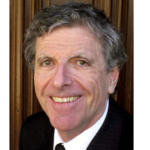The U.S. Supreme Court ruled 5-4 in favor of Mark Janus, meaning public sector union workers can no longer be forced to pay dues that are routinely used for partisan political purposes.
Associate Justice Samuel Alito wrote for the majority: “States and public-sector unions may no longer extract agency fees from nonconsenting employees. The First Amendment is violated when money is taken from nonconsenting employees for a public-sector union; employees must choose to support the union before anything is taken from them. Accordingly, neither an agency fee nor any other form of payment to a public-sector union may be deducted from an employee, nor may any other attempt be made to collect such a payment, unless the employee affirmatively consents to pay.”
The following statements from policy experts at The Heartland Institute – a free-market think tank – may be used for attribution. For more comments, refer to the contact information below. To book a Heartland guest on your program, please contact Media Specialist Billy Aouste at [email protected] and 312/377-4000 or (cell) 847/445-7554.
[NOTE: The Heartland Institute has a professional TV studio in its office available for a remote connection to any news station or network on short notice.]
“The Supreme Court has freed millions of American workers from manipulation by union bosses that misrepresent their interests. On the heels of this decision, every state should move quickly to certify that no American worker is ever compelled to give their hard-earned money to support self-serving union bosses.”
Tim Huelskamp, Ph.D.
President & CEO
The Heartland Institute
[email protected]
312/377-4000
Dr. Huelskamp represented Kansas’ 1st District in the House of Representatives from 2011 to 2017.
“The Janus decision is a victory for the Rule of Law, not for conservatives or liberals, which are terms that do not apply to court cases. It was a victory for working people nationwide, because they will now be truly free to decide whether they want to join a Union or not. Over the long run, it will be a victory for unions, which will now have to focus on providing true benefits for their members, to attract their freely chosen support. Peter Ferrara, Senior Fellow for Legal Affairs, Heartland Institute”
Peter Ferrara
Senior Fellow for Legal Affairs
The Heartland Institute
[email protected]
“The Supreme Court has restored freedom to government union members. These employees can now enjoy the right to freely assemble without being force to pay union dues and fund partisan politics. “
Lennie Jarratt
Project Manager, Education
The Heartland Institute
[email protected]
312/377-4000
“The Supreme Court reached the correct conclusion on the question of agency fees. If public sectors unions – which make government agencies less responsive, reduce their quality, seriously hamper public finances, and pervert labor markets – cannot survive without compelling funds from people who choose not to belong to them, then they deserve to die. For the sake of the republic, let’s hope they do.”
Tim Benson
Policy Analyst
The Heartland Institute
[email protected]
312/377-4000
“After 41 years, the Abood decision – which yoked teachers and other public employees to a union by forcing them to pay dues even if they didn’t want to belong – has been eradicated. With the Janus decision having passed Supreme Court muster, no government worker will have to pay a union as a condition of employment.
“This is a win for everyone. Workers benefit because they can now exercise their freedom of association. Public employees now possess a right that most Americans widely support – the right of workers to decide for themselves whether to join a labor union or not. In 2014, a Gallup Poll found that 82 percent of Americans agreed that ‘no American should be required to join any private organization, like a labor union, against his will.’
“Unions will benefit as well because they no longer have disgruntled workers to deal with. In some cases, they may have less money in their coffers, but they will be more unified now that they have only willing customers. To retain those customers, union leaders will have to be responsive to their constituents’ interests, thereby creating more viable unions. As demonstrated by recent teacher strikes in several right-to-work states, educators and other workers will continue to be able join unions and successfully advocate collectively for various issues.”
Larry Sand
President, California Teachers Empowerment Network
Policy Advisor, The Heartland Institute
[email protected]
312/377-4000
“Winners from today’s landmark Supreme Court decision: public employees who, like Illinois’ Mark Janus, detest being compelled to pay a fee to support the politically tinged bargaining activities of a public union they do not wish to join. The biggest losers: teacher unions that will no longer automatically receive a significant chunk of revenue from unwilling members.
“Other winners: parents who wish to exercise rightful control over their children’s upbringing free of union-driven monopolistic control – and indeed all Americans, who win by the Supreme Court at last affirming that the First Amendment protects their free-speech rights from coercive manipulation serving statist interests.”
Robert G. Holland
Senior Fellow, Education
The Heartland Institute
[email protected]
312/377-4000









